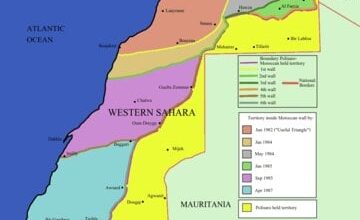What is the benefit of the Egyptian position? By Jamal Fahmi
Edited and translated from Arabic by Ibrahim Ebeid

What is the benefit of the Egyptian position?
By Jamal Fahmi
Millions of Arabs, including a large percentage of Egyptian citizens, are currently feeling pain because of the official position of the Arab regime in general and the Egyptian government in particular, of what the Israeli enemy army has been doing for months in the Gaza Strip, where a heinous holocaust is being committed and unprecedented in all modern human history, in terms of barbarism and brutality to the point of madness.
This crime is superior in the ugliness that continues its bloody chapters on the land of Palestine currently, harvesting tens of thousands of our people there, while the official Arab system, with the majority of its miserable components, silent the silence of the graves, but the eyes of the people of the nation, whether in Palestine or elsewhere, look at where Egypt stands in particular from this holocaust, and perhaps many of them spoke out with confused words ranging from condemnation and reproach, surprise and anger, not only because Egypt is the most important and most vital among Arab countries and the most powerful and influential, but also, because what is happening in Palestine in general and in Gaza in particular, is close to its supreme strategic interests and threatens its national security in a grave and direct threat, which is not appropriate for this miserable confusion in positions, and sometimes even contradictory positions, especially in light of the enemy’s threats of an imminent invasion of the Rafah area, where there are now approximately one and a half million Palestinians who took refuge in this area, which is only a few meters from the borders of Egypt, to escape the Holocaust.
So what are the reasons and constraints preventing Cairo from taking a more robust, precise, and less confused position towards what is happening a stone’s throw from its territory?
The following lines will monitor these reasons, which can all be placed under two headings, first, the type and nature of Egypt’s current rule and political doctrine, and second, the conditions of the country that led to the policies of this rule.
We begin with the nature of the system, which in short does not differ in essence – let alone details – from the nature of most Arab regimes, especially in terms of the weakness of their contact with their peoples from the moment of existence in the absence of any appearance of real democracy, and then this weakness remains present throughout the years of their very long lives, as it remains active and embodied in sterile and disappointing economic and social policies followed by these regimes and may be characterized, as in the Egyptian case, by a chaos of priorities that inevitably leads to a succession of episodes of Serious structural crises and distortions that negatively affect the quality of life of the overwhelming majority of members of society, and raise the levels of corruption and looting to high levels that will fatally infect the principle of the integrity of governance, which in turn leads with the passage of time to the spread of a state of despair and despair that ravages the whole society.
Here, it must be noted that the current Egyptian regime suffers, in addition to everything that has passed, a terrible decline in efficiency, as it blocks its ears from any sincere advice, regardless of the knowledge and experience of its source, which exacerbates its ailments and diseases and makes it several times surprising and ridiculous, perhaps more than anger.
However, what I mentioned about its political doctrine remains within the title of the nature of the regime in Egypt. Initially, it’s necessary to apologize for using this expression, as the existing government in Cairo now has difficulty finding a political doctrine it can adopt. Still, the whole matter does not come out of random choices that are not united by a link, but instead choose it, or instead it may choose itself, however, agreed and in a way that does not indicate that behind its selection any thinking or reflection, as it seems to embody the extreme poverty of competence !.
As for the second heading, under which the constraints and reasons for Egypt’s miserable official position on the terrible crime committed by the enemy in Gaza, i.e., the political, economic, and social conditions that shape Egypt’s image currently, are features that one can see clearly without the slightest trouble or scrutiny.
The governance policies have led to a natural disaster at all levels, especially the economic and social levels.
Economically, Egypt is on the verge of bankruptcy after many years of superstitious waste and waste of the country’s capabilities and expansion in a way that transcends irrationality, in borrowing from abroad until the external debt swelled in an unprecedented manner in all stages of the country’s modern history – jumping in less than ten years from about $ 40 billion to nearly $ 170 billion today – and the servicing of these debts annually drains a considerable percentage of the Egyptian state’s income, and all this money has been spent. Projects are of little or no importance, and most are not based on severe feasibility studies.
The effects of these disastrous policies on the social level have become more than terrible; in light of the uncontrolled high prices that exceeded all borders and affected all vital goods and services, a large percentage of society is now deteriorating in distress and misery that brings them closer every day to a real famine!
And yet.
But despite all this abundance of misery and ruin, does Egypt now have no power to stand firm against the criminality of the enemy and deter him from persisting and harming its interests and security, at least?
Notice: Edited and translated from Arabic by Ibrahim Ebeid .March 3, 2024





